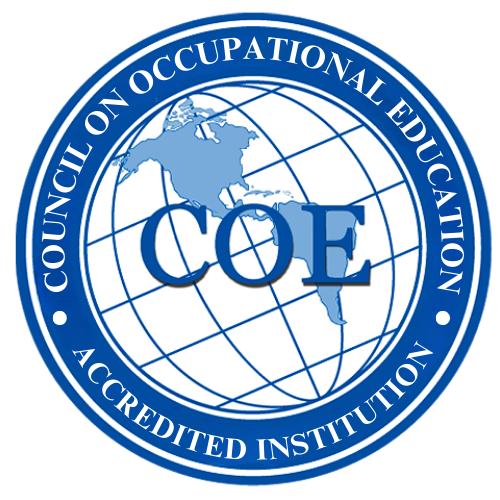Enroll in LA’s Best Clinical and Administrative Medical Assistant Program

11-Month* Medical Assistant Diploma Program in South Los Angeles, CA
Medical Assistants are the doctors’ sales representatives, providing their patients with the highest quality of customer service and patient care. Medical Assistants assist doctors with diagnostic and therapeutic procedures as well as provide patient education so patients will comply with doctors’ instructions.
Working alongside doctors and other health care professionals, Medical Assistants experience utmost job satisfaction by knowing that they make a difference in the lives of their patients by promoting a healthy lifestyle and maintaining their doctor visits regularly.
This course prepares students for the Vocational Nurse and Ultrasound Technician programs.
Healthcare Career College, located in Paramount, CA, serves medical assistant students in Long Beach, Compton, Lakewood, Downey, Bellflower, Norwalk, Cerritos, the greater Los Angeles area and north Orange County.
The best way to see if Healthcare Career College is the right fit for you is to attend an information session. You can book an information session to get a true feel for what it’s like to be a part of the Healthcare Career College community. Schedule an information session now or Get more info.

Medical Assistant Administrative and Clinical Certification
11 Month* Diploma
- 25% Job Growth Over Next 10 Years
- Graduates hired by physicians’ offices, hospitals, & outpatient clinics
- 2 Certification Tracks
- Advance into Medical Coding, Nursing, Healthcare Administration and much more!
* Program length when completed in normal time
Become a Qualified Medical Assistant
During the Medical Assistant certification program, you will learn:
- Taking patient Vital Signs and Medical Histories
- Drawing Blood
- Preparing Exam Room for the Doctor
- Electrocardiography (EKG)
- Electronic Health Records and Office Skills
- Patient Medical Records and Insurance Billing
- Externship in a medical office
- ABC Adult School
- Five Keys Charter School
Who Is Eligible to Take the Medical Assistant Course?
The medical assistant certification program is open to all students who have earned a high school diploma or equivalent. The program is also available to those with some medical experience or who have worked in health care. Applicants must be 18 years of age and must pass a criminal background check.
Other requirements include the following:
- Possess a minimum level of English reading, writing, and speaking proficiency or be at an ESL intermediate low level
- Basic mathematics skills
- Complete the enrollment process, including an application and background check
- Must wear the required scrubs and lab coat at all times
Is a Career as a Medical Assistant Right for You? Take the Healthcare Career College "Medical Assistant Career Training Readiness Quiz"
This fun, online quiz takes 3-minutes to complete and you’ll get a personalized report. Identify your strengths and social style plus the training and positions you’re best suited for. Get Your Healthcare Career Training Readiness score now.
Diploma Features:
- 3-in-one program: includes Medical Assistant, EKG Tech, and Phlebotomy Tech
- Free certification Prep and Testing
- Free Phlebotomy Technician (CPT1) **
- Electronic Health Records Training
- Microsoft Office Training
- Professionalism and Career Success
- Externship included
- **To qualify for free Phlebotomy Technician, student must graduate from Medical Assistant program and provide a signed Letter of Phlebotomy Experience for California Certification from their employer to qualify under the on-the-job experience in phlebotomy
Job Outlook:
- Opportunities in both customer service (front office) and clinical (back office) positions
- Small and large organizations hiring
- Employment growth of 12% between 2024-2034 in the United States**
- Career growth potential
- Certification is accepted nationally
Benefits of the Clinical and Administrative Medical Assistant Program
Medical assistants are a vital force in the healthcare industry. They provide a wide range of medical services, from taking medical histories and vital signs to preparing exam rooms and filing medical records.
The job outlook for medical assistants is excellent, with students finding work opportunities in medical offices, clinics, hospitals, medical labs, and medical research facilities. Students who complete an accredited medical assistant program in Orange County will:
- Obtain knowledge in medical office administration and medical terminology
- Develop skills in medical coding and medical billing
- Understand medical office technology
- Gain experience in medical assisting
- Begin the course without a degree (all you need is a high school diploma and training)
- Have the opportunity to take the medical assistant certification exam
- Gain access to competitive salaries
Medical Assistant Career Opportunities
Most Medical Assistants work in doctor’s offices. Medical Assistants work with general family practice doctors as well as specialists such as cardiologists, oncologists, podiatrists, dermatologists, pediatricians, and OB/GYN physicians.
Additionally, Medical Assistants have been employed with plastic surgeons, medi-spas, and weight loss centers. Others work in hospitals, outpatient care centers, schools, and other healthcare practitioners’ offices, including chiropractors and optometrists.
Our graduates have been hired by:
- Kaiser Permanente
- Molina Healthcare
- Altamed
- Cedars-Sinai
- USC
- Harbor-UCLA
- And more!
Median Pay: $21.25/hour**
View Medical Assistant job postings in Paramount, CA on Indeed.com
Nationally Recognized Medical Assistant Certification
Healthcare Career College is approved by NCCT and NHA as an official testing site for Certification Exams. As part of the program, we prepare you for the Medical Assistant and the Electronic Health Records Certification Exams. You can take the exams right here on campus. Additionally, we offer Phlebotomy Technician for FREE with our Medical Assistant program***.
Certification shows potential employers that you have the skills and level of knowledge to be an asset to the industry.
Why Choose Healthcare Career College for Medical Assistant Classes?
Providing the best medical assistant training in Los Angeles, Healthcare Career College offers a comprehensive program to help you build the skills and knowledge to become a successful medical assistant.
With the guidance of experienced instructors and our dedicated staff, you can explore different medical settings and gain practical experience in various areas. This allows you to pursue a career in a specialty you’re most passionate about. You will also gain access to the following:
- State-of-the-art facilities with the latest medical equipment
- Small class sizes and individual attention
- Externship opportunities with local medical offices and laboratories
- Career Services support to secure your first job upon graduation
- Flexible schedules
- Financial aid and scholarship opportunities
Explore Other Healthcare Career Training Opportunities at Healthcare Career College
Medical Billing and Coding
Dental Assistant
Physical Therapy Aide
Massage Therapy
Is a Rewarding Career in Medical Assisting Right for You? Get More Info…
If you’re interested in learning more about careers in Medical Assisting and exploring whether Healthcare Career College is right for you, fill out the form on this page to receive more information.
For immediate questions, call (562) 804-1239
*Program length when completed in normal time.
**Source: U.S. Bureau of Labor Statistics Occupational Outlook Handbook
***To qualify for free Phlebotomy Technician, student must graduate from Medical Assistant program and provide a signed Letter of Phlebotomy Experience for California Certification from their employer to qualify under the on-the-job experience in phlebotomy option.


